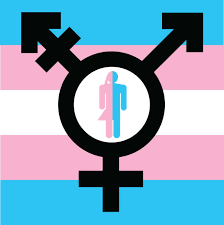Testosterone blockers, often thought of in the context of male health, are increasingly being recognized for their benefits in female patients as well. These medications can play a crucial role in managing a variety of hormonal imbalances and conditions that affect women. Understanding how testosterone blockers work, why some women may choose to use them, and what potential benefits and side effects exist is important in navigating this aspect of healthcare.
In this article, we’ll delve into the ins and outs of testosterone blockers for females, exploring their purpose, the conditions they address, and the lifestyle modifications that can enhance their effectiveness. It’s an important conversation to have, especially as more women seek to understand their hormonal health and how it impacts their overall well-being. Natural Estrogen BlockersDefine Transgender Woman
Understanding Testosterone Blockers and Their Purpose
Testosterone blockers, also known as anti-androgens, are medications that inhibit the effects of testosterone in the body. While testosterone is traditionally viewed as a male hormone, it also plays a role in females, influencing various bodily functions, including libido, energy levels, and mood. When testosterone levels are too high or have an adverse effect, blockers can help restore hormonal balance.
The main purpose of testosterone blockers is to mitigate the effects of excess testosterone. This could be due to conditions like polycystic ovary syndrome (PCOS) or certain adrenal disorders, where the body produces higher-than-normal levels of androgens. By blocking testosterone, these medications can help alleviate symptoms related to hormonal imbalance, such as hirsutism (excessive hair growth), acne, and irregular menstrual cycles.
Why Some Females Consider Using Testosterone Blockers
Many females consider testosterone blockers when experiencing symptoms linked to high testosterone levels. This can include issues such as unwanted facial and body hair, severe acne, and difficulties with weight management. These symptoms can significantly impact a woman’s self-esteem and overall quality of life, leading them to seek medical advice and potential treatment.
Additionally, women with diagnoses like PCOS often explore testosterone blockers as part of a comprehensive treatment plan. PCOS is a common condition that can lead to an array of symptoms stemming from hormonal imbalance. For many, testosterone blockers represent a viable option for managing these symptoms and regaining control over their health.
Common Conditions Treated with Testosterone Blockers
Testosterone blockers are commonly prescribed for conditions such as PCOS, where elevated testosterone levels lead to various symptoms, including irregular menstrual cycles and excessive hair growth. The use of these blockers can significantly improve the quality of life for women dealing with the hormonal turmoil associated with PCOS, allowing them to lead more balanced lives.
Another condition that may warrant the use of testosterone blockers is hirsutism, which can lead to significant distress due to unwanted hair growth on the face and body. Testosterone blockers can help reduce hair growth and improve skin conditions related to hormonal imbalances, providing much-needed relief for those affected.
How Testosterone Blockers Work in the Female Body
Testosterone blockers work by competing with testosterone for binding sites on androgen receptors in the body. By blocking these receptors, the medications effectively reduce the impact that testosterone has on various tissues, leading to a decrease in the related symptoms. This mechanism helps to lower the levels of dihydrotestosterone (DHT), a more potent form of testosterone that contributes to many of the negative effects associated with high androgen levels.
The action of testosterone blockers can also influence the production of other hormones, promoting a more balanced hormonal environment. In women, this balance is crucial for maintaining regular menstrual cycles, supporting mood stability, and ensuring skin health. By addressing the root causes of symptoms, these blockers can help women feel more like themselves again.
Potential Benefits of Using Testosterone Blockers
One of the primary benefits of using testosterone blockers is the reduction of unwanted physical symptoms associated with high testosterone levels. Many women experience improved skin clarity, reduced body and facial hair growth, and more regular menstrual cycles after starting treatment. This can lead to increased self-confidence and overall satisfaction with one’s appearance.
Additionally, testosterone blockers can contribute to emotional well-being by alleviating symptoms of anxiety and mood fluctuations that often accompany hormonal imbalances. With more stable hormone levels, women may notice improvements in their overall mood and energy, paving the way for a more balanced lifestyle.
Possible Side Effects to Be Aware Of
While testosterone blockers can offer numerous benefits, it’s essential to be aware of potential side effects. Common side effects may include fatigue, nausea, changes in libido, and potential weight gain. It’s crucial to monitor these effects and discuss them with a healthcare provider if they become bothersome or impact daily life.
In some cases, women may experience more severe side effects, such as liver function changes or blood clot risks, particularly if they have certain pre-existing conditions. Regular check-ups and blood tests can help ensure that the treatment is safe and effective over time, allowing for any necessary adjustments.
Lifestyle Changes to Enhance Treatment Effectiveness
In addition to medication, lifestyle changes can play a vital role in enhancing the effectiveness of testosterone blockers. Maintaining a balanced diet rich in whole foods can help regulate hormones and improve overall health. Regular physical activity is also beneficial, as it can help manage weight and improve mood, which is particularly important for women dealing with hormonal imbalances.
Stress management techniques, such as yoga and meditation, can also support hormonal balance. Since stress can exacerbate symptoms of hormonal imbalances, prioritizing mental and emotional well-being can significantly enhance the overall effectiveness of testosterone blockers, leading to a more holistic approach to health.
Consulting a Doctor: What to Expect and Ask
When considering testosterone blockers, a consultation with a healthcare provider is essential. During this medical visit, expect a thorough assessment of your hormonal health, which may include blood tests to measure hormone levels. Your doctor will likely discuss your symptoms in detail and review your medical history to determine the best course of action tailored to your needs.
It’s also important to prepare questions to make the most of your consultation. Ask about the potential benefits and side effects of testosterone blockers, how long it may take to see results, and what lifestyle changes you might consider to support treatment. Open communication with your healthcare provider will ensure you receive the best possible care tailored to your situation.
Testosterone blockers can be a game-changer for many women dealing with hormonal imbalances. By understanding how these medications work and their potential benefits and side effects, women can make informed decisions about their health. As always, it’s crucial to consult with a healthcare provider to determine if testosterone blockers are the right choice for you and to explore a comprehensive treatment plan that suits your individual needs. Remember, hormonal health is a vital component of overall well-being, and taking proactive steps can lead to a more balanced and fulfilling life.


